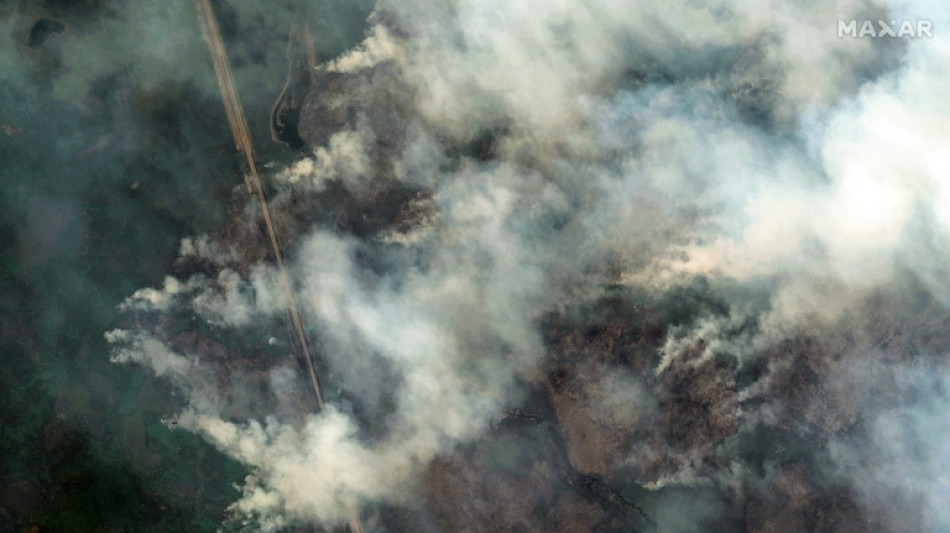
RBGPF
0.1000


Residents of a town near Vancouver were on stand-by to evacuate Wednesday as Canada's devastating wildfire season worsened, with officials warning weather conditions through the summer were ripe for further blazes.
A state of emergency has been declared in Squamish, British Columbia, just 64 kilometres (40 miles) north of Vancouver, a city where the greater metropolitan area population exceeds three million.
British Columbia's emergency management department warned in a late Tuesday post on X that some residents of Squamish district "must be ready to leave on short notice."
Max Whittenburg, a 19-year-old Squamish resident, told AFP he was "in shock" to see the fire encroach so close to the community.
"I've never seen a fire in Squamish, at all, ever," the skateboard coach said.
"We've already prepared most of the stuff in our house just in case we do have to evacuate," he added. "We'll be ready to go."
Luke Procter, also 19, said he was staying up late and rising early to prepare, including by helping his father "hook up the trailer to our jeep just in case we need to go."
Marc-Andre Parisien, a researcher at the Canadian Forest Service, said fires near the coast like the one threatening Squamish are particularly worrying because "these are areas that did not traditionally burn."
They remain less intense than fires further inland, but "we have more and more of them," he told AFP.
Two years after a historically devastating summer, Canada is once again facing a massive fire season, with burned areas already exceeding year-to-date averages from recent years.
More than 220 active fires were burning across the country Tuesday, with half of them considered out of control.
More than 3.3 million hectares (12,700 square miles) have already been consumed by flames -- an area equivalent to the country of Belgium.
Smoke from Canadian fires has reached Europe after drifting across the Atlantic Ocean.
- Increased risk -
In recent years, Canada has experienced warming at least twice as fast as the rest of the globe.
Linked to human-induced climate change, rising temperatures lead to reduced snow, shorter and milder winters, and earlier summer conditions that promote fires, experts say.
Environment Canada forecast this week that much of Canada was likely to see higher than normal temperatures throughout the summer.
That, combined with dry spring conditions in several areas, "could increase the risk of wildfires in the coming months," Environment Canada said.
Two provinces in central Canada -- Saskatchewan and Manitoba -- were hard-hit with rough starts to fire season, and had to declare a state of emergency at the end of May.
Mega wildfires are now burning in western Alberta and British Columbia, as well as in northern Ontario, the country's most populous province.
Now, more than a dozen new fires are detected daily across Canada -- often started accidentally by humans, but sometimes ignited by lightning strikes.
W.Cheng--ThChM